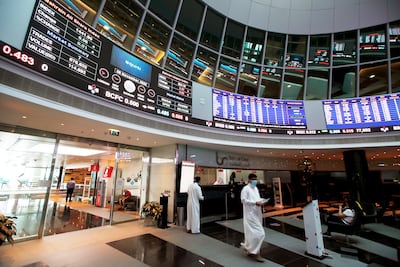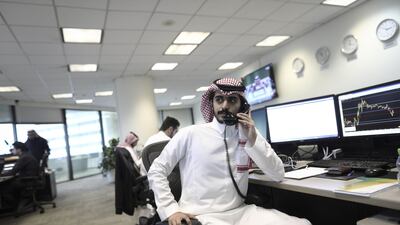The actions of the world’s financial markets have caused some of the biggest socio-economic disruptions in history.
The 2008 global credit crunch is a recent case in point — a poorly regulated subprime housing market, lax lending standards, corporate risk taking and inaccurately priced mortgage-backed securities destroyed economies, ruined livelihoods and heaped misery upon billions of people around the world.
Of course, much has changed since then, which is why consumers, investors and regulators are enthusiastically embracing environment, social and governance (ESG) principles.
In the world of finance and banking, ESG principles look a lot like Islamic finance.
Underscored by the inherent value of responsible investing and the fair use of capital, Sharia-compliant financial services place precedence on shared reward, the avoidance of pure financial transactions and the use of real underlying assets. These deliver a greater sense of fairness and sustainability.
In principle, therefore, there is the possibility of a market convergence that would bring Islamic finance products such as Sharia-compliant sukuk bonds or ‘waqf’ (also known as endowment) funds into the portfolios of ESG-hungry investors worldwide and offer Islamic banking institutions a growing share of what is likely to become one of the biggest, and perhaps dominant, investment sectors of the future.
The scale of opportunity for this convergence is vast. Indeed, the growth of ESG investment as a sector has taken the world by storm, emerging from the confines of specialist ethical funds to mainstream portfolios and the pace of growth is astonishing.
The Financial Times reports that assets in ESG funds grew by 53 per cent between 2020 and 2021 to reach $2.7 trillion.
Meanwhile, S&P Global reports that 80 per cent of investors globally consider ESG reporting an important factor for their investment decision-making, and nearly 50 per cent are willing to divest from companies not taking significant ESG action.
But, is there agreement on how to define what an ESG fund actually is? What can be done to govern their performance — and against what metrics? With that in mind, can Islamic finance trust the current ESG investment landscape?
To better understand just how well-suited Islamic and ESG finance are to each other, we need to consider who is doing what and why.
We know that many funds simply remove sectors that are widely considered to be unethical such as tobacco. Others throw in what may superficially be considered to be ethical — like clean energy.
On the face of it, these are good things to do. But does the shifting of funds really constitute a long-term ESG strategy and does it negate the unethical actions of third parties down the supply chain?
If not, fund managers could be accused of “greenwashing” what they do. This is why the measurement of impact is crucial.
Stock exchanges and regulatory bodies can take a lead role by mandating ESG impact reporting requirements in annual reports.
Within the GCC, some countries have already introduced mandatory reporting for listed companies.

The Bahrain Bourse has issued ESG reporting guidelines for issuers and in 2021, Saudi Arabia issued ESG disclosure guidelines.
It is encouraging to see widespread support for ESG accountability among policymakers — and their commitment to engendering a culture of transparency and ethics across the general business landscape.
In the Islamic finance industry, alignment and mapping allow us to fully understand where the money leads and what impact it makes.
It is an approach designed to ensure not only compliance with recognised Islamic principles, but also the stability and sustainability of the investment itself.
It can be seen as a long-term, low volatility risk reduction strategy, recognisable to all investors.
To gain a granular understanding of impact, ESG investments could deploy the three-stage analysis employed by the Islamic finance industry.
Measuring in stages rather than waiting until the end, the three-stage approach allows us to monitor what is happening in real time, thus reducing the potential for ethical or operational transgressions.
executive vice president and head of Islamic banking, Mashreq
The first stage of measurement is to analyse “output”, which means understanding the immediate effects that the investment has on impact processes.
The second is designed to ascertain “short-term outcomes”, allowing us to understand immediate changes that may have been achieved in terms of impact objectives.
Finally, we consider the “long-term outcome” of an investment, which requires an assessment of the changes that have been achieved over the long term.
In essence, this is a hands-on lifecycle approach that helps to deliver intended impact and avoid the potential for unintended greenwashing.
A lifecycle approach also makes it possible for fund managers to ensure that when they make claims about ethical credentials, it can be validated.
Additionally, clients placing funds with financial institutions in current accounts or deposits can be issued with green certificates to ensure that their funds will only be used for ESG financing purposes.
Of course, these methodologies and outcomes are well-established in Islamic finance — but we can now look forward to sharing the intrinsic societal value of what we do with investors of all faiths as we move towards a more responsible global financial model.
Ibrahim Ali Al Mheiri is the executive vice president and head of Islamic banking at Mashreq

